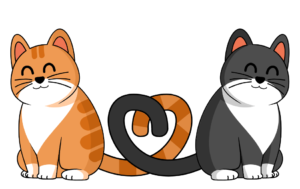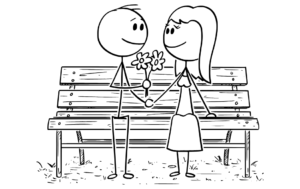One of the most common questions asked during a tarot reading is, “How does he feel about me?” Whether you are dating, in a relationship, or navigating an uncertain connection, it’s natural to want clarity about someone’s true emotions.
Tarot can provide insight into emotional energy, unspoken feelings, and the deeper dynamics at play in a relationship.
In this post, we’ll explore how to understand tarot answers to questions about someone’s feelings.
We’ll also look at common cards that appear in these types of readings and how to interpret them in a grounded, meaningful way.
Key Takeaways
- Tarot reveals emotional energy and underlying feelings, not mind-reading or fixed outcomes
- The question “How does he feel about me?” is best answered through emotional themes, not just surface-level interpretations
- Certain cards often appear when someone is feeling love, confusion, fear, or emotional distance
- Context, surrounding cards, and your intuition all shape the meaning
- Tarot reflects the current emotional truth, which may shift over time
What Tarot Can and Cannot Reveal About His Feelings
Tarot gives you a window into emotional energy. It can show:
- How someone is emotionally experiencing the connection
- Whether there is emotional depth, confusion, hesitation, or passion
- Patterns or fears influencing the person’s feelings
However, tarot does not offer:
- Direct access to someone’s private thoughts
- Guaranteed future actions or outcomes
- Control over someone else’s choices
Instead of asking, “Does he love me or not?” a better approach is to ask, “What emotional energy is this person holding toward me right now?”
Common Tarot Cards That Reflect Feelings
Here are some cards frequently associated with emotional states in relationship readings:
Cups Cards
These cards generally deal with emotions, love, and intuition.
- Two of Cups: Mutual feelings, harmony, emotional connection
- Knight of Cups: Romantic interest, emotional attraction, pursuit of connection
- Ten of Cups: Deep emotional fulfillment or long-term vision of happiness
- Four of Cups: Emotional distance, withdrawal, or hesitation
- Five of Cups: Regret, sadness, or emotional loss
Major Arcana Cards
These cards often indicate powerful emotional dynamics or spiritual themes in the relationship.
- The Lovers: Emotional alignment, meaningful choice, strong connection
- The Moon: Confusion, uncertainty, or mixed feelings
- The Devil: Desire mixed with emotional control or fear of vulnerability
- The Hermit: Emotional distance, introspection, or inner processing
- Strength: Emotional restraint, quiet affection, or protective feelings
Swords and Pentacles Cards
When these appear, they may point to emotional overthinking, practicality, or emotional hesitation.
- Page of Swords: Curiosity, cautious interest, watching from a distance
- King of Pentacles: Stable affection, serious intentions, grounded care
- Eight of Swords: Emotional restraint due to fear or overthinking
- Four of Pentacles: Holding back, fear of vulnerability, emotional control
Tips for Interpreting His Feelings Through Tarot
- Look at the emotional tone of the cards as a whole, not just individual meanings
- Notice whether the cards show openness or emotional distance
- Consider surrounding cards to identify influences like fear, past experiences, or timing issues
- Trust your intuition. What feeling do you get when you look at the spread
- Avoid interpreting the reading based only on your hopes or fears
Tarot reflects the emotional truth of a moment. That truth may evolve, especially in relationships where emotions are still developing.
Final Thoughts
Asking how someone feels about you through tarot is not about gaining control over their heart. It’s about understanding where they are emotionally and what energy exists between you.
Whether the answer shows clarity or complexity, it can help you make decisions with more awareness and self-respect.
If you’re facing uncertainty in a connection, love and relationship tarot can offer gentle insight. Instead of looking only for reassurance, let the cards help you understand emotional honesty — both theirs and yours.



